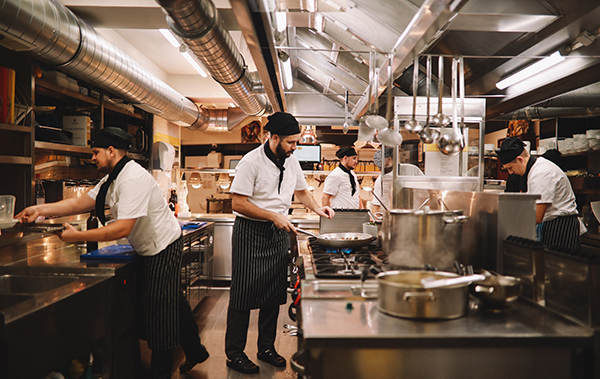After two of the most challenging years in the history of the modern foodservice industry, sustainability has remained a key priority for restaurant operators, according to research from Datassential.
Nearly a third of restaurant operators—31 percent—said their restaurant operations have become more sustainable in the wake of the COVID pandemic, Datassential said in a recent webinar detailing results from its new Sustainability Keynote Report. That compares with 20 percent who said their operations had become less sustainable.
For onsite foodservice operations, which include colleges and universities, health care facilities, and business and industry foodservice locations, the trend was the opposite, however, with only 16 percent reporting that their operations have become more sustainable, and 46 percent reporting that they have become less so.
Retail foodservice operators were more in line with the traditional restaurant industry, but to a lesser degree, with 21 percent saying their operations have become more sustainable and 12 percent saying they had become less sustainable, and the rest reporting no change one way or the other.
The biggest barrier to operating more sustainably, operators said, is the cost, cited by 53 percent of operators. Almost as many operators, however—47 percent—said their suppliers don’t offer sustainable solutions.
“To the extent that the supplier community can build more sustainability into their products and practices, that will make it easier for an operator to make that sustainable choice without having to take an additional hit in their margins,” said Jack Li, executive chairman at Datassential.
The Sustainability Keynote Report found that sustainability has a significant impact on restaurant operators’ purchasing decisions. Seventy-three percent of restaurant operators said sustainability considerations influence the products and ingredients they buy to some degree, including 14 percent who said sustainability exerts a heavy influence on their purchasing.
“It seems like there is an underlying desire among operators to do the right thing,” said Li.
Interestingly, restaurant operators said the most common way they learn about sustainability is through industry trade shows, outpacing the Internet as a source for information.
The Sustainability Keynote Report also found that sustainability is an important consideration for almost two thirds—64 percent—of consumers, including 23 percent who say it is extremely important.
The report found that although there are some disparities among different demographics, such as political party affiliation, the actions that people take to support sustainability are similar. The most common way consumers say they are taking action to support sustainability is to limit their use of disposables or single-use plastics, cited by 46 percent of consumers.
Eating less meat or switching to a more plant-based diet was the second most popular action consumers said they were taking to support sustainability, cited by 29 percent of consumers surveyed. A quarter of consumers said they were more likely to buy sustainably sourced items.
The research also found that 39 percent of consumers said that they were willing to use sustainable, disposable utensils, but they were not willing to pay more for them, while another 29 percent said they were willing to pay more.
Li also said during the webinar that operating sustainably requires a deep commitment on the part of restaurants that want to leverage it as one of their attributes.
“You really have to lean very heavily into this if you want to be differentiated in the marketplace,” he said. “You have to make this a central part of your core proposition. It can’t just be another logo added to the 100-plus other logoed things at your company.”
Related: Now Available: Entering the Foodservice Tip Sheet; SFA Trendspotters Name 2023 Specialty Food Trends.

